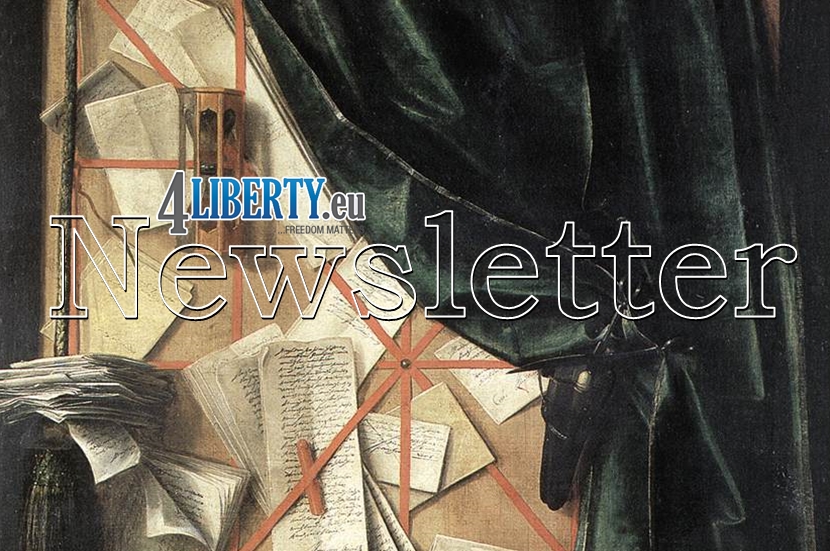
Cornelis Norbertus Gysbrechts: Trompe-l’oeil: Letter Rack with an Hourglass, a Razor and Scissors (ca. 1664) // Public domain
The April issue of the 4liberty.eu Newsletter provides an overview of the articles published on the 4liberty.eu website, serving as a starting point for further exploration.
|
|
|
|
|
|
|
































